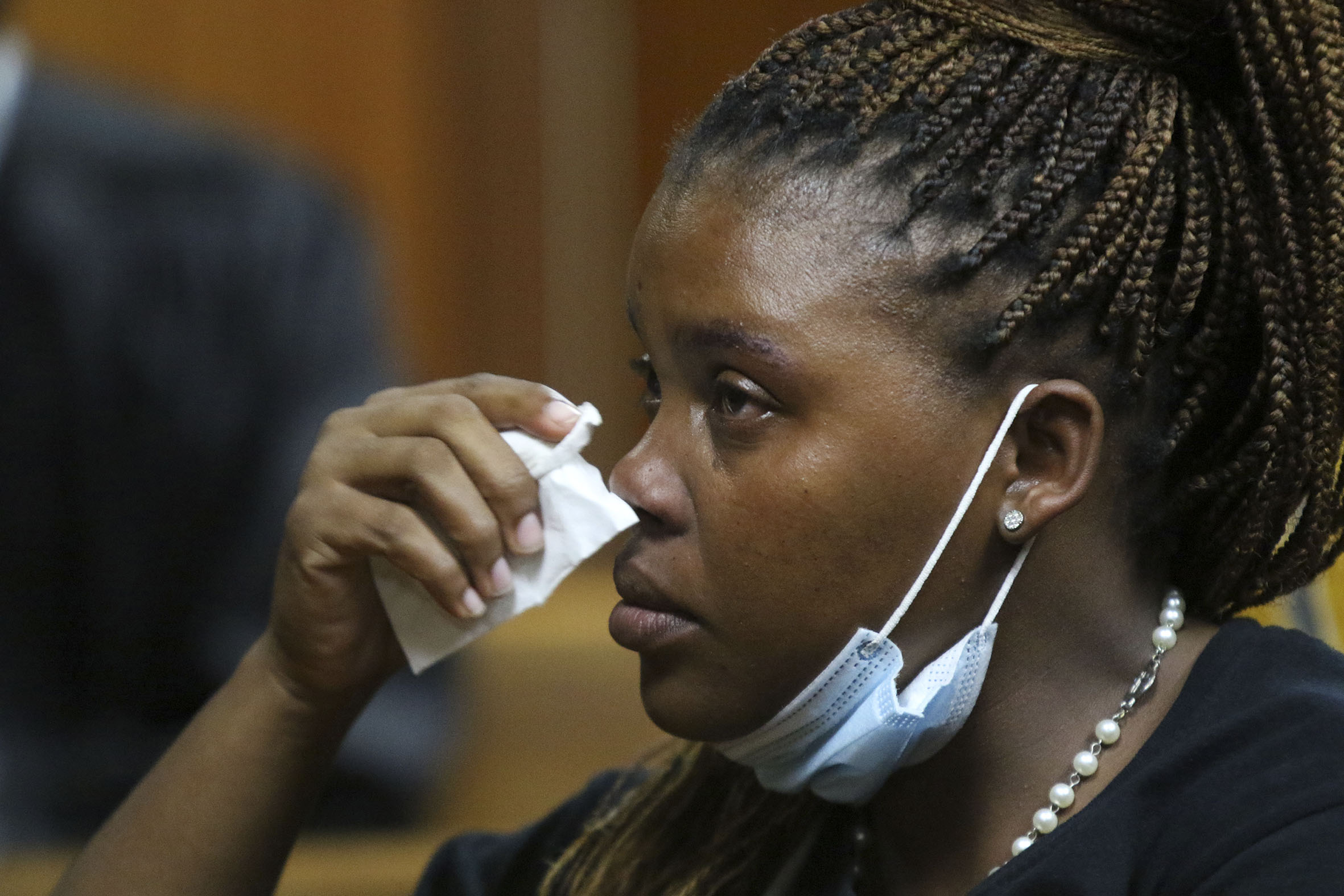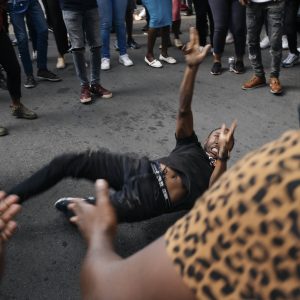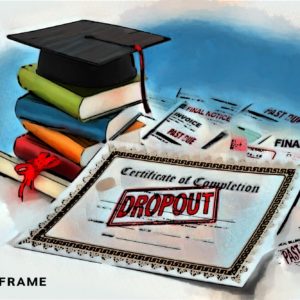Sibongile Mani doesn’t deserve a tarnished name
The student convicted of spending financial aid money that wasn’t hers has been granted leave to appeal her five-year prison sentence. It is a step towards justice, dignity and humanity.
Author:
19 May 2022

South Africa’s Constitution recognises and protects the independence of our courts. But alongside that autonomy is a devotion to certain ideals of our democratic society: the right to life and dignity. These human rights are promised to every person born or living in South Africa – including criminals.
This commitment to human rights is shaky at present, though. The words “NSFAS thief”, “fraudster” and “criminal” have appeared in headlines next to the face of Walter Sisulu University student Sibongile Mani. She was sentenced to five years in prison for spending more than R800 000 of the R14 million that the National Student Financial Aid Scheme (NSFAS) deposited erroneously into her account.
Mani’s fate has been turned into a matter of principle rather than a legal argument, perhaps because South Africa more than most countries is one in which the law can listen to our collective heart and enact our collective values. It doesn’t have to be carried out against our better judgement, it can be an instrument of empathy and restoration.
Related article:
In the pre-sentencing reports, Department of Correctional Services probation officer Unathi Mahlanyana and social worker Phathiswa Vuza outlined three criteria on which Mani’s case for a suspended sentence rested: her socioeconomic background, the interest of society and the nature of her offence. The second has split public opinion.
There are those who side with state prosecutor Jacques Cilliers: “Mani spent the public’s money and therefore the public would like to see her in prison.” There are those – students chief among them – who maintain that Mani is “only guilty of being Black and poor”. And then there are those who both recognise Mani’s wrongdoing and extend a level of sympathy towards her, as a single mother providing not only for her two young children but also her brother, cousins and grandmother. Many identify with her as her family’s first university graduate, holding a degree in accounting, a diploma in internal auditing, a post-graduate certificate in education and studying towards an honours degree.
Had Mani not been sentenced to prison, as Mahlanyana and Vuza recommended, she would have done community service at Lingelihle Senior Secondary School in Komani, Eastern Cape. She could have used her education to teach children. As Mani’s lawyer Asanda Pakade said, “it would be unfortunate that such a talent would be lost when other people in the community may benefit from her”. Her appeal could lead to such a suspended sentence, under correctional supervision.
A senseless sentence
Mani did a bad thing. She spent money she wasn’t entitled to, presumably aware that other students would go hungry as a result. Her wrongdoing is not what is being contested, nor is she being absolved.
But what comes of Mani spending five years in jail, outside of a fantasy of deterrence? Who exactly is being deterred when the circumstances of Mani’s case – waking up to R14 million as if from the gods – are so extraordinary as to be unthinkable?
What comes of sending a young Black woman nearing the completion of her honours degree and without any prior offences to a prison populated by violent criminals? It is highly unlikely she would have stolen R800 000 had it not fallen in her lap (a “technical glitch” for which nobody has been held accountable.)
Related article:
When Covid-19 took overcrowding in prisons from “cause for concern” to “life or death”, President Cyril Ramaphosa freed 19 000 inmates identified as “low-risk” because, like Mani, they had committed non-violent crimes. Two years later, Mani’s actions are being framed in alarmist terms and she is being sent to prison where overcrowding remains an issue.
While South Africa lacks accurate statistics on recidivism, the criminal reoffending rate is high for two main reasons: rehabilitation and reintegration programmes are largely absent from the justice system and people generally leave prison worse off on account of gang violence, exposure to dangerous criminals and the cost of surviving. Pair this with the global context of one in five non-violent prisoners being rearrested of a violent crime within three years of their release and the argument that Mani’s sentence is “in the public interest” loses further weight.
If the gloves don’t fit
Mani is not a danger to society. If the magistrate and the National Prosecuting Authority (NPA) were seeking a scapegoat – someone to be the face of economic crime, who could be thrown to the wolves – then they have chosen poorly.
NPA spokesperson Luxolo Tyali said after Mani’s sentencing, “We hope that the sentence is a lesson not only to her but to other younger people that dishonestly taking what is not yours is a punishable offence.” The magistrate said, “The court cannot shy away from the fact that this is a prevalent offence and ever increasing.” This reasoning goes against what philosopher Immanuel Kant laid out in his formula of humanity: act so that you treat human beings always as an end in themselves, and never as a means to something else.
Related article:
Putting Mani’s case next to that of ANC Women’s League president Bathabile Dlamini, found guilty of perjury, says some damning things about how justice is dispensed in South Africa. If Mani had the means to pay her way out of serving time in jail like Dlamini has done, would she have been afforded the same loophole? The list of people implicated in corruption and embezzlement across the private and public sectors is extensive, yet justice is few and far between. For Mani to be singled out – as vulnerable and depended on as she is – should be cause for condemnation and outrage.
The public has a choice in defining and remembering Mani either as the cold-blooded criminal with a “desire for self-aggrandisement” she has been made out to be, or a student who took an ill-conceived yet understandable response to desperation. The urge towards the former is curious but not altogether beyond understanding.
One of the reasons behind the impulse to condemn is likely a deep frustration at the inaction that has plagued attempts to rid South Africa of crimes committed for financial gain. Even so, white-collar crimes are often systematic and coordinated in intricate, layered ways. There is a power dynamic and level of intention to them that is missing in Mani’s instance. As such, counteractions to these crimes ought to look beyond a single “bad guy”, especially when the person is among the most vulnerable in South Africa. Misdirected anger has come at Mani’s expense, and that is a shame.



